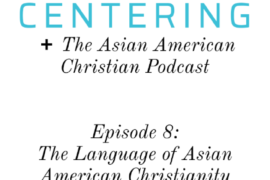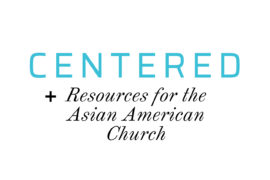[A legend in the Los Angeles Japanese American community, Bill Watanabe was born in the Manzanar concentration camp during World War II. He founded the Little Tokyo Service Center in 1980. He is a Christian and a founding member of Asian-American and Pacific Islander Christians for Social Justice.
With Bill’s permission, we are reprinting an article of his originally published in the Rafu Shimpo in 2017. Particularly during this Asian American Pacific Islander Heritage Month, his wisdom and experiences are invaluable resources for our community. – Editor]

This year marks the 75thAnniversary of the issuance of President Franklin Roosevelt’s Executive Order 9066 (EO 9066) in February of 1942 that authorized the mass-incarceration without any due process of all Nikkei [people of Japanese ancestry outside of Japan – Ed.] living along the west coast of America. Within the context of this gross injustice based solely on fear and racism, there were some stories of courage and kindness. The following true story is but one example.
In the small town of Sebastopol in Northern California there is a beautiful Buddhist temple named Enmanji (you can google “Enmanji Sebastopol” to see pictures).
The building is a faithful representation of a 12thCentury Kamakura-style temple (the structure has the distinction of being made without the use of nails) and was once displayed at the 1933 Chicago World’s Fair. After the Fair ended, the temple was donated to the Buddhist church in Sebastopol and was dismantled and re-constructed at that location. The temple became a center for the Nikkei community in Sebastopol and the surrounding farming areas.
When WW2 broke out, the white population of Sebastopol were conflicted with fear instilled by rumors of a Japanese military invasion and treacherous espionage. Now, all of a sudden, people looked at the local Japanese community with suspicion and perhaps even anger and hatred. Soon thereafter, because of President Roosevelt’s Executive Order 9066, all of the Japanese were rounded up and incarcerated at remote prison camps. There were however some white high school kids who were acquainted with their JA classmates and considered them as friends that were being unjustly treated.
After the war had ended, Japanese families began to return to Sebastopol. There were angry feelings by some townspeople who did not want the Japanese to come back. The Enmanji Buddhist temple became a target of anti-Japanese animosity by racists and there were attempts to fire-bomb the temple and incidents of drive-by shootings into the temple as if it were a target-practice range.
The local United Church of Christ had a youth group made up of high schoolers who knew that this Buddhist temple was important to their Japanese American friends. They also felt as Americans it was wrong to target a church or another person’s legitimate religious beliefs. The youth decided they would stand guard on-site and protect the Buddhist temple every night to prevent future fire-bombings or drive-by shootings. It is hard to imagine such courage and bravery on the part of these young lives – to care for and express love for their friends! They did this every night for 3 months until emotions cooled down and the threat diminished.
The temple still stands today as a testament to how a group of courageous young people of one faith decided to take a stand for freedom and justice during difficult times to protect the religious rights of another faith.
This is an example of what makes America great.



39 Comments
Pingback: intrumental christmas jazz
Pingback: heaven harp instrumental
Pingback: gently falling snow
Pingback: jazz cafe
Pingback: Microdose Purecybin Microdose
Pingback: ใบพัดเครื่องจักรอุตสาหกรรม
Pingback: ร้านต่อผม
Pingback: cherry gaming casino คืออะไร ?
Pingback: ร้านเค้กวันเกิดใกล้ฉัน
Pingback: LSM99 คืออะไร ทำไมถึงเป็น เว็บพนันออนไลน์ อันดับ 1
Pingback: efectos secundarios de hidrocodona
Pingback: เช่าตู้เกมส์
Pingback: Nexus Market
Pingback: ล่าโปรบาคาร่า แจกหนักจัดเต็ม
Pingback: ไก่ตัน
Pingback: Profibus cable
Pingback: สล็อตเว็บใหญ่ทุนหนา โบนัสแตกเท่าไหร่ ถอนได้ไม่อั้น
Pingback: Food Recipes
Pingback: เฟอร์นิเจอร์สไตล์มินิมอล
Pingback: ทางเข้าpg168
Pingback: promo
Pingback: pk789
Pingback: ไฮเบย์
Pingback: ยินดีต้อนรับสู่ Kapook888 ทางเข้า
Pingback: certified translation bangkok
Pingback: สกรีนแก้ว
Pingback: here
Pingback: ออกแบบตกแต่งภายในคอนโด
Pingback: fear of god essentials
Pingback: https://wipeoutads.com/2025/03/02/understanding-the-dynamics-of-pocket-option/
Pingback: lotto888
Pingback: pg168
Pingback: พิมพ์โปสการ์ด
Pingback: ออกแบบรีสอร์ท
Pingback: ออกแบบเสื้อ
Pingback: แทงบอล ufa11k
Pingback: เครื่องเป่าแอลกอฮอล์
Pingback: บาคาร่าเกาหลี
Pingback: hor voor binnendraaiend raam